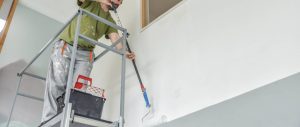Inside the Lapses: How the Gunman at a Trump Rally Had a Strategic Advantage Over Countersnipers
Incident Overview
In a shocking security failure at a Trump campaign rally in Butler, Pa., the man who attempted to assassinate former President Donald J. Trump was able to exploit the blind spots in the defenses deployed by the counter-sniping teams, garnering an unforeseen advantage that led to a grave security lapse.
The Gunman’s Edge
The gunman, identified as Thomas Matthew Crooks, was able to position himself at a spot that eluded the sight of three teams of countersnipers. Two of these were federal teams and one was a local team, which had been strategically positioned and briefed to prevent any such catastrophic occurrence.
Disturbingly, it appears that Mr. Crooks’ strategic positioning was no fluke. Prior to the rally, he is believed to have deployed a drone over the site to survey and pinpoint the blind spots within the venue, thereby gaining an unforeseen advantage.
Failure in Foresight
In an alarming revelation, Kimberly A. Cheatle, the Secret Service Director, admitted in a hearing on Capitol Hill that the Secret Service failed to use drones to assist in aerial surveillance of the rally. This failure suggests a critical faux pas in the event’s security planning and a major breach in the preparation protocol.
Positioning of the Gunman
Meticulously detailed evidence-based reconstructions show that Mr. Crooks made full use of landscape features, especially two trees and a warehouse roof, to conceal his location from the line of sight of the counter-snipers. Due to this, even though the Secret Service teams were facing the direction of the gunman several minutes prior to the horrifying event, they failed to identify his presence in time to prevent the shooting.
Lapses in Security Visibility
These security professionals were also inadvertently hindered by the warehousing complex’s topography, with the shooter’s position on the rooftop obscuring him from their visibility. Detailed analysis shows that even when the countersnipers seemed to be looking in the direction of the gunman, only the very top of his head was likely visible, and that too, only when he was behind the highest point on the roof, rendering him practically invisible to them.
A Closer Look: The Countersnipers’ Perspective
Reported video footage highlights that even the second Secret Service countersniper team, positioned farther south and west on the roof of a barn, was unable to spot the shooter due to its initial orientation away from the gunman. Only after redirecting their attention towards the gunman’s direction about a minute and a half before the shots were fired, would they have spotted him. However, it seems that by then it might have been too late to prevent the incident.
A third group of law enforcement countersnipers was present within the gunman’s warehouse complex in an adjacent building. With their view obscured by the positioning of windows and their defined duty of watching over the ground crowd, neither they nor a possible fourth team about 1,000 feet from the gunman’s location, could prevent the gunfire that injured Mr. Trump’s right ear and killed a rally attendee.
Lapses in Security Perimeters
Notably, the warehouse where Mr. Crooks was stationed was outside the perimeters designated for security checks by the Secret Service. This added to the existing loopholes in rally security, resulting in a grave oversight. It remains unclear as to why the significant area of warehouses was not included within the security parameters.
Aftermath
The glaring security lapses forced Kimberly A. Cheatle, the Secret Service Director, to resign. Meanwhile, an ongoing FBI investigation revealed that a local SWAT team had spotted Mr. Crooks on the roof of a warehouse around 18 minutes before Mr. Trump took the stage. While this information was communicated through radio to the Secret Service, the poor coordination and response time led to this tragic event that caused both physical harm and a severe breach of confidence in public safety.

























